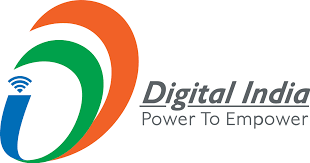EPF And ESIC Compliances Registration
EPF and ESIC compliances are essential reporting requirements that eligible entities must fulfill to ensure legal compliance. These include declarations such as employee records, contribution details, nominations, and more, which must be submitted to the regulating department promptly. Don't see it as an additional burden; we're a trusted agency providing optimal solutions. Choose our Government Approved EPF and ESIC Compliances Package for guaranteed results..
₹2499
Have any queries? Talk to our expert
By clicking on Proceed to Request a Callback Service, You have accepted our Terms & Conditions Policy checked
EPF And ESIC Compliances Registration
Annual EPF and ESIC Compliances
To provide financial security and health protection to working individuals who rely on their salaries to meet their needs, EPF and ESIC are compulsory options for commercial units with employees above a certain threshold. Once employers enroll in these schemes, they must fulfill certain mandatory reporting obligations each fiscal year to ensure legal compliance. Let's outline the primary criteria for employers to obtain EPF and ESIC registration and comply with their annual requirements.
EPF:
This scheme operates under the guidelines of the Employees’ Provident Funds and Miscellaneous Provisions Act, 1952, as prescribed by the Employees’ Provident Fund Organization (EPFO).
- Mandatory registration for all companies/organizations that are at least 3 years old and have more than 20 employees. Voluntary registration is accepted for units with fewer employees.
- Both the employer and employee contribute equally to this scheme.
- If the number of employees is more than 20, the contribution amount is 12% of Basic + DA. If the number of employees is fewer, the contribution amount is 10% of Basic + DA.
ESIC:
This scheme operates under the ESI Act, 1948, as prescribed by the Employees’ State Insurance Corporation (ESIC) under the Ministry of Labour and Employment.
- Mandatory registration for establishments/units/factories with 10 employees earning a monthly income of INR 15,000 within 15 days.
- 75% of the salary contribution comes from the employee, and 4.75% from the employer under this scheme (except for employees earning INR 100 per day).
Any commercial unit meeting these conditions is eligible for EPF and ESIC annual compliances each fiscal year as discussed in this article.
Compliance with EPF and ESIC Post-Registration
Enrollment of Eligible Employees:
For EPF:
- Employers should enroll new eligible employees by providing their KYC details.
- Employees should fill out Form 2 (Declaration and Nomination) under the PF Scheme by the 25th of the month following their appointment.
For ESIC:
- Any eligible employee should be enrolled within 10 days of their appointment and must possess an ESIC card to avail of the benefits (the same card is applicable for any other employer enlisted under the ESIC Scheme).
Records to Maintain:
- Attendance and Wages Register of employees
- Form 6 Register (Details of Employer contribution in the respective Schemes)
- Inspection Books containing details of inspections conducted and reports by the authorities
- Accident Register of employees
- Record of monthly Challans and Returns
- The Account Books and Registers for general compliances, such as, P&L Account, Cash Book, Balance Sheet, etc.
Monthly Payment Completion:
Ensure the completion of monthly payments through specific Challans.
Annual PF & ESIC Compliance Requirements
- Eligible employers must remit Provident Fund payments into the Provident Fund Account via Challan, as opened during registration, on the 15th of each month.
- Provide details of new joiners (Form 5) and terminated employees (Form 10). Employers should also furnish information on employees from the previous month, as well as new and resigned employees, within 15 days.
- Submit the Consolidated Monthly Statement (Form 12 A).
- Submit the Annual Return by the 30th of April every year, including the consolidated annual contribution statement (Form 3A and 6A).
- Conduct PF Audit as applicable under the guidelines of this Scheme.
- Eligible employers should clear the Monthly contribution in the ESIC Account via Challan, as opened during registration, on the 15th of each month.
- Provide details of new joiners and terminated employees. Employers should also furnish information on employees from the previous month, as well as new and resigned employees, within 15 days.
- Submit Bi-Annual Returns (Form 5) as follows:
- April to September: 11th November
- October to March: 11th May
- Immediately report any accident or death cases (Form 16), where applicable.
- Conduct ESIC Audit as applicable under the guidelines of this Scheme.
Penalties for Non-Compliance with EPF and ESIC Requirements
- Penalty of 12% per annum interest for each day of delay in contribution payment.
- Penalty for late payment as follows:
- Delay up to 2 months: 5% interest per annum
- Delay of 2-4 months: 10% interest per annum
- Delay of 4-6 months: 15% interest per annum
- Delay of more than 6 months: 25% interest per annum, not exceeding 100% at a time
- Penalty of 12% per annum interest for each day of delay in contribution payment.
- Restrictions under the IT Act: If the violation of non-payment of EPF/ESIC contribution falls under an offense under the Income Tax Act, the concerned unit may be disallowed from making further deposits into the PF/ESI Account, thereby forfeiting the corresponding scheme's deduction benefits.
Advantages of Yearly PF and ESIC Compliance for Qualified Enterprises
- Enhances employee loyalty and satisfaction
- Builds reputation and positive Cost to Company
- Provides a competitive edge
- Improves employment opportunities
- Ensures stability in the company's financial condition
- Safeguards employees' social and personal lifestyles
- And more...
Documents required for ESIC Online Registration
A certificate that demonstrates your business's registration under either the Factories Act or the Shops and Establishment Act.
A certificate indicating the legal structure of your business, whether it's a company, partnership firm, or another type of establishment.
A certificate verifying that your business is registered for GST (Goods and Services Tax).
A document outlining the purpose and regulations of your company.
Proof of your business address, which can be provided through:
- Bills for electricity, gas, or phone (dated within the last three months)
- A rental agreement for the premises where your business operates
- Property tax receipts for the property where your business is located
A list containing the names of all your employees.
A PAN card for your business and for each of your employees.
The salary details of all your employees.
The cancellation documentation for your business bank account.
A list of your company’s directors and shareholders.
A record of your employees' attendance.
Frequently asked questions
Who needs to register for EPF and ESIC?
What is the contribution rate for EPF and ESIC?
What are the penalties for late payment of EPF and ESIC contributions?
Is PF compulsory for all employees?
What our clients say
See what our clients have to say about their experience working with us and our team.
Awards & Recognitions
We've been acknowledged by Startup India and Digital Startup India for our efforts in aiding startup ventures in India.


